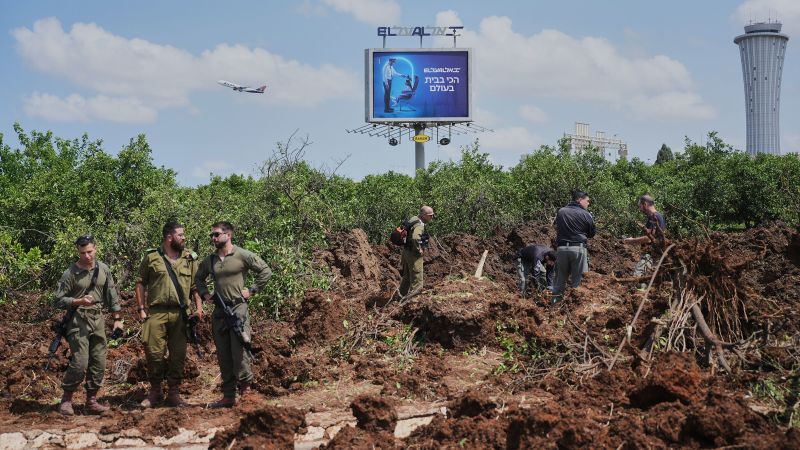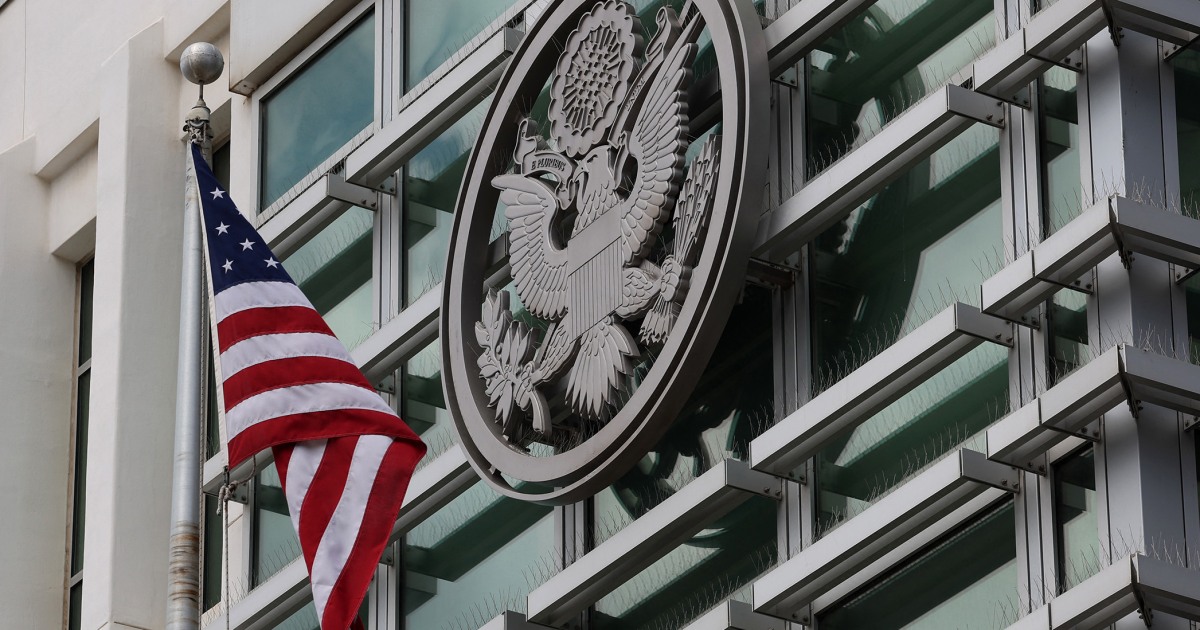Missile Attack Forces Temporary Closure of Ben Gurion Airport, Raising Security Concerns

Jerusalem, CNN – On Sunday morning, Israel faced a significant security challenge when a missile fired from Yemen landed near Ben Gurion Airport, prompting a brief shutdown of the country's primary international airport. This incident not only highlights Israel's vulnerabilities but also underscores the Houthi rebels' ongoing capability to strike targets far beyond their borders, even amidst a continuous military campaign by the United States aimed at neutralizing such threats.
The airport, located near Tel Aviv, halted all flights for approximately 30 minutes after the missile landed in close proximity. The Israeli military reported that there were “several attempts” to intercept the incoming missile, although the effectiveness of these attempts is currently under review. The Israel Defense Forces (IDF) stated, “The results of the interception are under review.”
During this tense moment, the IDF launched its advanced long-range Arrow interceptor system in a bid to neutralize the incoming threat. Additionally, the United States has deployed its Terminal High Altitude Area Defense (THAAD) anti-missile system in Israel, further bolstering the country’s defenses.
The Houthis, a rebel group backed by Iran, quickly claimed responsibility for the missile attack, asserting that it was a form of retaliation against what they termed Israel's “crime of genocide” against the population of Gaza. Yahya Saree, a spokesperson for the Houthis, noted that this attack marked a significant escalation as it was reportedly the first incident where the group successfully targeted Israel’s international airport. He claimed that the missile used was a “hypersonic ballistic missile,” showcasing their capacity to reach distant targets with precision.
Israeli Defense Minister Israel Katz responded to the missile strike with a stern warning, indicating that the country would respond with significant force to any aggression. “We will attack whoever attacks us sevenfold,” he stated, underscoring the seriousness of the situation.
In a sign of the escalating tensions, Israel’s security cabinet convened on Sunday afternoon to deliberate on the implications of this incident. The strike on Ben Gurion Airport represents a major breach of security at the nation’s most heavily fortified site, raising critical questions regarding the effectiveness of Israel’s missile defense systems amidst a backdrop of increasing aerial threats.
In response to the missile strike, trains servicing the airport were halted, and authorities urged the public to avoid the vicinity of the airport. Images emerging from the scene captured debris scattered on the airport grounds, with reports of smoke rising from the area where the missile landed. A video circulating on social media depicted the moment of impact, further amplifying public concern.
Amir Bar Shalom, a military affairs analyst for Israel's Army Radio, conveyed the need for a careful assessment of the failed interception attempts. He emphasized the missile's remarkable accuracy given that it was launched from approximately 2,000 kilometers away. “They were very accurate, and to be very accurate if you’re launching from 2,000 kilometers, it’s impressive,” Bar Shalom remarked. He urged that the threat posed by such missiles must be taken seriously and indicated that the military would rigorously analyze all elements of the interception failure.
There are ongoing concerns about Iran's advancements in missile technology, particularly regarding long-range capabilities that could potentially evade existing air defenses. Bar Shalom specified that while it is still uncertain whether the Houthis have received such technology, understanding the details of the interception failures is crucial for future defense strategies.
Meanwhile, the Palestinian militant group Hamas has expressed solidarity with the Houthis, proclaiming Yemen as “the twin of Palestine” in their ongoing struggle against what they perceive as oppressive forces. The attack on Ben Gurion Airport was reported as the third consecutive day of missile launches from Yemen aimed at Israel.
Houthi leaders assert their missiles possess advanced features, including stealth technology, a range capable of reaching 2,150 kilometers (or 1,335 miles), high maneuverability, and remarkably fast speeds of up to Mach 16. Since the outbreak of the war between Israel and Hamas in October 2023, Israel has faced a barrage of missile and rocket attacks from various fronts, including from Hezbollah in Lebanon and the Houthis in Yemen. Although the Israeli air defense systems have successfully intercepted the majority of incoming projectiles, incidents like this one raise serious concerns about their reliability.
In December, a Houthi missile had a significant impact, striking Israel's commercial center in Tel Aviv and resulting in injuries among civilians. This missile, described as a hypersonic ballistic missile labeled “Palestine 2,” was aimed at an Israeli military target in the Jaffa area. The Houthis also claimed responsibility for a deadly drone attack in Tel Aviv earlier in July, marking the group's first such strike on the city.
In response to these ongoing threats, Israel has conducted multiple strikes against Houthi positions in Yemen, targeting strategic assets such as power plants and maritime ports. However, the United States has undertaken a significantly larger military campaign in Yemen recently, aiming to degrade the Houthis' operational capacity, particularly in disrupting shipping in the Red Sea. This extensive campaign has included the deployment of B-2 stealth bombers and the utilization of high-end munitions, with costs approaching $1 billion in just three weeks. Despite these efforts, the Houthis have continued to demonstrate an alarming ability to launch ballistic missiles against Israel, further complicating the security landscape in the region.


























